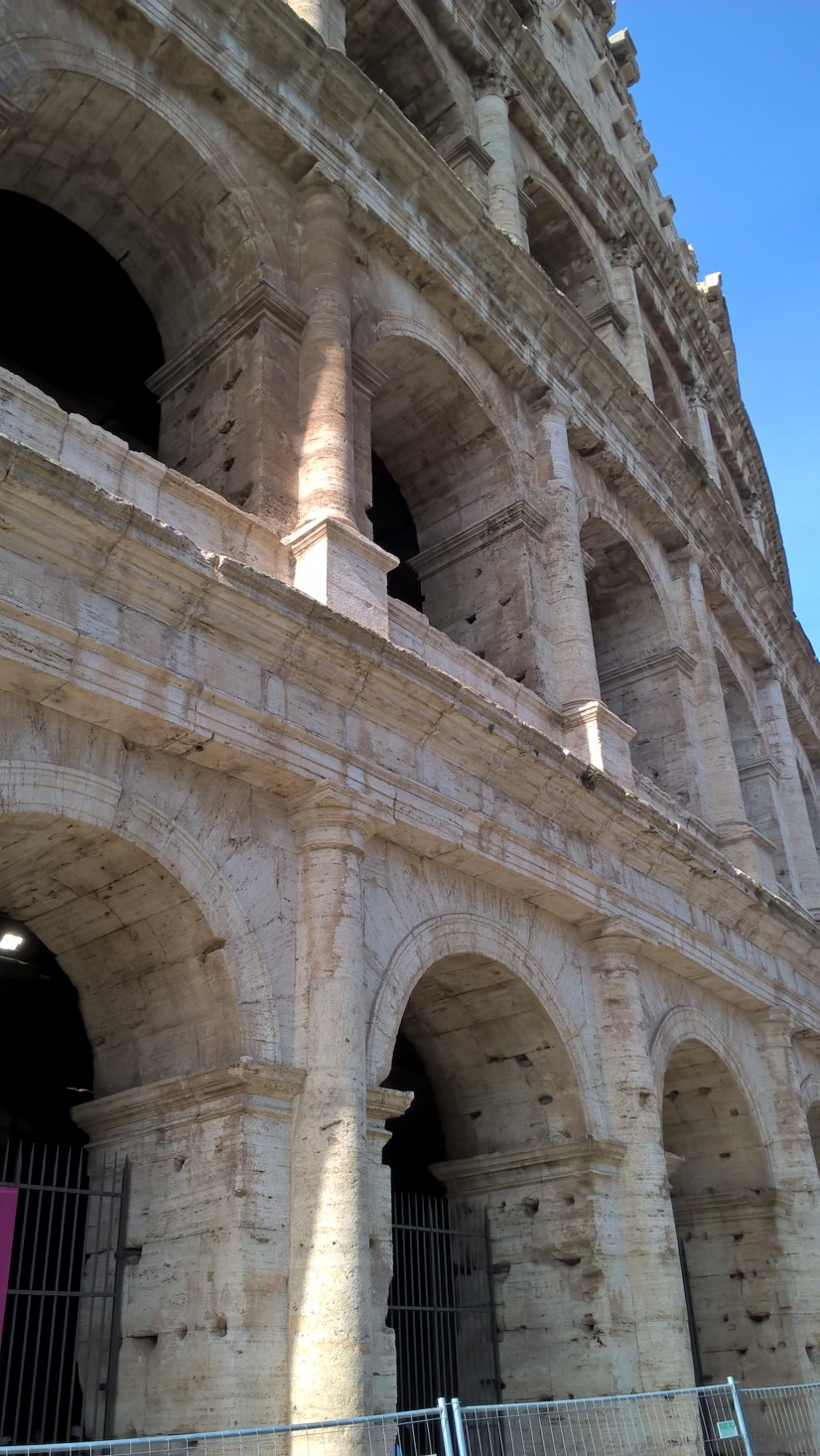I visited the Colosseum in Rome with mixed feelings... I wanted to see it because it is historically significant, but I was very aware of what I was visiting - the scene of mass murder, mass execution of Christians and other 'criminals', animals starved so that they would fight to the death, and where losing gladiators could be spared or not based on an audience vote. My fear was that what I would find would offend - and in some ways it certainly did.
As an architectural structure, it is truly amazing. As a historical 'document' it is vitally important. The trouble is, despite plenty of good information to explain what it is, the majority of people there seemed to be unable, or unwilling, to 'read' it. I couldn't help wondering how they would react were they to visit Auschwitz, or some other twentieth century site of human atrocity.
To be very clear, I am not comparing the systematic extermination of around 11 million people by the Third Reich with the unnumbered executions and fights-to-the-death in Rome. What I am struck by is touristisation (if such a word exists) that glibly overlooks the 'what' in the pursuit of a checklist visit and yet another grinning selfie (sometimes complete with 'thumbs up' or 'victory V sign').
I stood quietly, looking down towards the hypogeum, where the accommodation of those condemned to die would have been - dark, dank, depressing. I thought of St Perpetua and the other countless martyrs whose deaths were mere lunch-time entertainment for those wealthy enough to secure a good seat at a day's sport. I closed my eyes, and prayed the Lord's Prayer - something that for me is always a 'communion of saints' thing - and for a few moments escaped the hubbub of tourists on 'free entry' Sunday. These people were faithful to the end, and it is to them, and others like them, that I owe the faith I now name as my own.
In a century from now, people will still visit Rome, and presumably do whatever, by then, is the equivalent of taking selfies. In a century from now, will people still visit Auschwitz, and if so, how will they behave? Will we recapture the ability to 'read' historically significant place, or will they just become part of an ever lengthening checklist of 'must see' places for those who have the freedom and money so to do?
Amidst the noise and activity, there was one, brief, moment that gave me hopeful pause... Looking across the arena, I spotted a simple, Roman, cross, erected to the memory of those who had died for their faith in this place. To me it spoke more than mere memorial, being a symbol of redemption, forgiveness, reconciliation and more. For many visitors, it was just another opportunity for a selfie... but, in that way only God's grace can, my annoyance was transformed to deep, deep sorrow and a renewed determination to follow, as best I can, in the footsteps of Jesus - even when to do so is costly, at least in some small measure.
